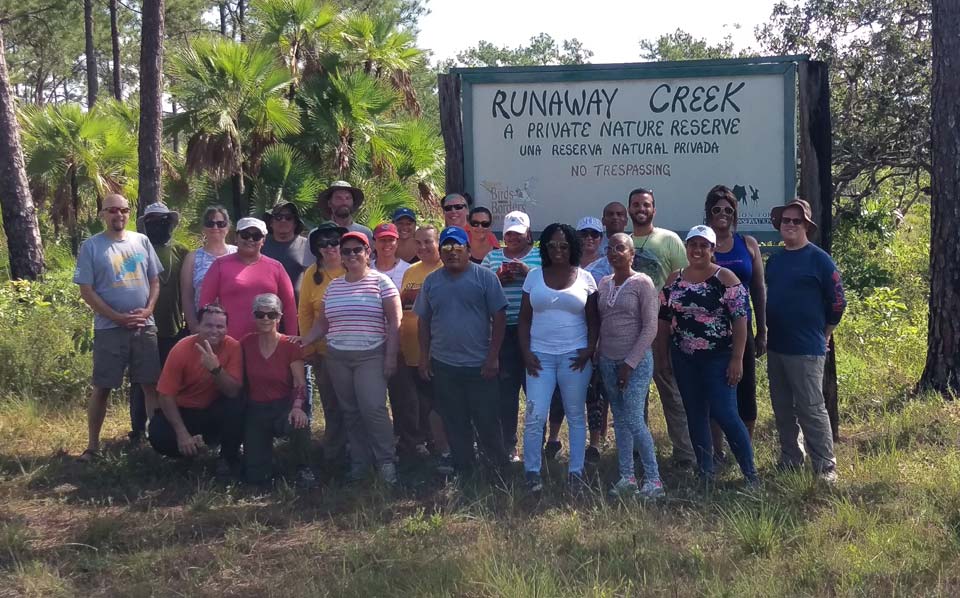TBZ once again partnered with our colleagues at the State University of New York (SUNY) Cortland to provide another session of our annual Summer Teachers’ Institute. 24 teachers from both Belize and New York came together for a wonderful learning and cultural exchange. The venue was our Tropical Education Center, one of the best “classrooms” for outdoor education in Belize.
The goal of the Institute is to provide an engaging exploration of nature and conservation concepts to teachers, who, in turn take these experiences back to their classrooms and inspire their students, and, by extension, the students’ families. Teachers are among the most respected and influential professionals in our society, and are, therefore, important stakeholders in conservation.
Recently, one of the most important conservation issues in Belize has been the establishment of the Maya Forest Corridor (MFC). This forested landscape provides crucial connectivity in Central Belize between the Selva Maya in the North and the Maya Mountains in the South, and provided invaluable benefits to both the people and wildlife of Belize.
This year’s Institute was appropriately themed “Corridors and Conservation,” and gave the teachers an immersive look at the significance of the MFC. The program used a combination of classroom lectures, role-play, team building exercises, and, of course, outdoor learning to convey “corridor concepts.” Through exploring a variety of sites, including the TEC’s savanna trails, and Runaway Creek Nature Reserve, the participants learned about the different ecosystems in the Corridor. A day and night tour of the Zoo introduced them to the many wildlife ambassadors who represent their wild counterparts still roaming and thriving in the Corridor.
One of the highlights was the amazing discussions that compared education in Belize and the US. Discussions on environmental challenges in both countries, as well as approaching advocacy and activism were weaved into the conversations, with wonderful results. As one teacher rightly put it, the job of educators is to look beyond the problems, and find the solutions!
After absorbing all the information and experiences, the teachers collaborated to produce an impressive artillery of lesson plans to suit a broad array of learning levels. Every lesson plan highlighted a different aspect of “Corridors and Conservation,” and meshed well with the relevant curricula.
It was inspiring to have a group of problem-solvers so devoted to both the environment and their students. PAWS UP to these excellent educators!



